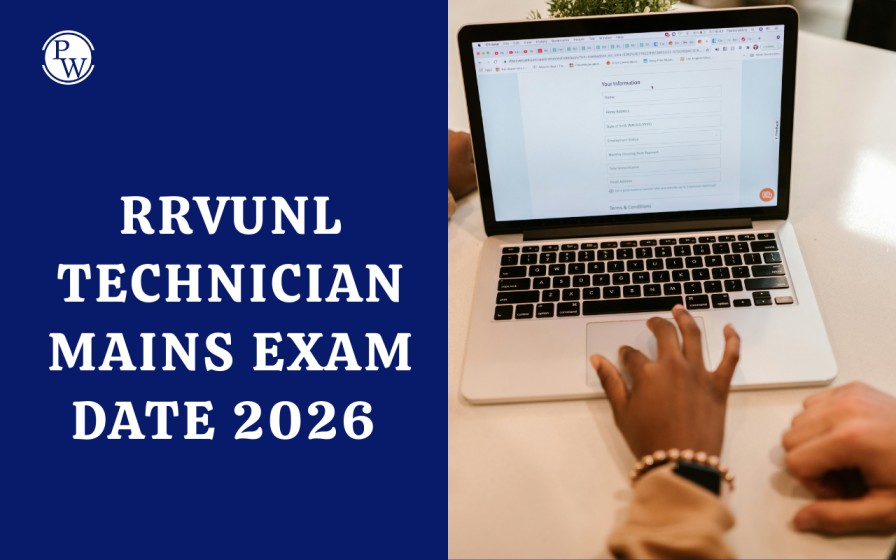
JKSSB JE Syllabus 2025: The Jammu & Kashmir Service Selection Board has announced the latest JKSSB JE Recruitment 2025 for 508 Junior Engineer vacancies for Civil Engineering cadre in the Public Works (R&B) Department and the Jal Shakti Department.
Candidates who are aiming to secure this prestigious position are required to clear the written exam with a good score. The entire selection process is based on the candidate's performance in the written test worth 120 marks.
To prepare effectively for JKSSB JE 2025, candidates must be well familiar with the syllabus outlined by the recruitment authorities. Candidates are advised to prepare according to the prescribed JKSSB JE Syllabus 2025 to avoid missing any topics.
JKSSB JE Syllabus 2025
The JKSSB JE Syllabus 2025 has been officially released by the Jammu & Kashmir Service Selection Board under the detailed advertisement. The syllabus covers a wide range of topics across Civil Engineering subjects.
The major subjects include Surveying, Mechanics, RCC Structures, Soil Mechanics, Hydraulics, Irrigation Engineering, Waste Water Management, Highway Engineering, Railway Engineering, etc.
The exam will contain 120 questions from core subjects to assess candidates' in-depth conceptual knowledge and problem-solving skills. We have outlined the entire JKSSB JE Civil Syllabus with a topic-wise breakdown to enhance the aspirant’s exam readiness.
JKSSB JE Syllabus 2025 Overview
The JKSSB JE Syllabus 2025 is now available on the board's official website, jkssb.nic.in. Candidates must have a thorough knowledge of the syllabus to know the key focus areas and their weightage of marks. They can streamline their exam preparation as per the latest syllabus and exam pattern.
Knowing the syllabus provides insights into the topic-wise coverage across all the sections, while the exam pattern indicates the complete paper structure, including the number of questions, marks allotted, exam duration, etc. Candidates can review the key highlights of the JKSSB JE Syllabus & Exam Pattern from the table below:
| JKSSB JE Syllabus and Exam Pattern 2025 Overview | |
| Exam Name | JKSSB JE (Civil) Exam 2025 |
| Conducting Body | Jammu & Kashmir Service Selection Board (JKSSB) |
| Post Name | Junior Engineer (Civil) |
| Exam Mode | OMR-based |
| Total Questions | 120 |
| Total Marks | 120 |
| Exam Duration | 2 hours |
| Subjects | Core Civil Engineering Subjects |
| Negative Marking | 1/4 mark will be deducted for every incorrect answer |
JKSSB JE Exam Pattern 2025
The JKSSB JE Exam 2025 will be conducted via OMR mode, consisting of 120 objective-based questions on core subjects. Each correct answer is worth one mark, and the exam spans 2 hours. We have summarized the detailed exam pattern in this section:
- The questions will be set in English only.
- A total of 120 questions will be asked from specific subjects.
- Each question will be awarded one mark for the correct answer.
- Each wrong answer will result in a deduction of 0.25 marks.
- The exam will end in a duration of 2 hours.
| JKSSB JE Exam Pattern 2025 | |||
| Subjects | Number of Questions | Total Marks | Duration |
| Civil Engineering Subjects | 120 | 120 | 2 hours |
| Total | 120 | 120 | |
JKSSB JE Civil Syllabus 2025 - Subject-Wise
The JKSSB JE Civil Exam 2025 will contain 120 questions from various core subjects. Candidates can find the subject-wise topics included in the JKSSB JE Civil from the table given below:
| JKSSB JE Civil Syllabus 2025 | |
| Subjects & Weightage | Topics |
| Surveying | Importance of surveying, principles and classifications, measurements of distance and directions, chain surveying, compass surveying, leveling, tachometry, the odolite, traversing, contouring, plane table surveying, curves. |
| Mechanics and Structural Analysis | Introduction, Concept of rigid body scalar and vector quantities, Laws of force, moment, friction, Centre of gravity, simple machines, torsion, Properties of material, Bending moment and shear force in statically determinate beams. Simple stress and strain relationship. Stress and strain in two dimensions, principal stresses, stress transformation. Simple bending theory, flexural and shear stresses, unsymmetrical bending, shear Centre. Thin-walled pressure vessels, uniform torsion, buckling of column, combined and direct bending stresses. slope and deflection, Analysis of trusses |
| RCC Structures | Concrete technology, Ingredients of concrete, water-cement ratio, workability properties of concrete, admixtures, special concretes, Nondestructive tests, basics of mix design. Concrete design-basic working stress and limit state design concepts. analysis of ultimate load capacity and design of members subjected to flexure, shear, compression and torsion by limit state methods. Basic elements of pre-stressed concrete, analysis of beam sections at transfer and service loads, one-way slab,and two-way slab. |
| Soil Mechanics | Origin of soils, properties, soil classification, three phase system, fundamental definitions, relationship and interrelationship, flow of water through soils, permeability & seepage, effective stress principle, deformation of soils, consolidation, compaction, shear strength characteristics, plate load test, SPT, Density control, Measurement of field density by core cutter and sand replacement method, soil exploration, bearing capacity and its methods |
| Fluid Mechanics and Hydraulics | Properties of fluids, hydrostatic pressure, measurement of pressure, flow measurements, flow through pipes, flow through open channels, hydraulic pumps, principle of conservation of mass, momentum, energy and corresponding equations,potential flow, applications of momentum and Bernoulli's equation, laminar and turbulent flow, flow in pipes, pipe networks. Concept of boundary layer and its growth. Uniform flow, critical flow and gradually varied flow in channels, specific energy concept, hydraulic jump Forces on immersed bodies, flow measurements in channels, tanks and pipes. Dimensional analysis and hydraulic modeling Kinematics of flow. |
| Irrigation Engineering | Introduction, water requirement of crops, hydrological cycle, Dams, Canals, dams, canal head works and regulatory works, cross drainage works, hydraulic structures, river training works, water-logging, drainage, groundwater recharge, well hydraulics. |
| Water Supply and Waste Water Engineering | Introduction, quantity of water, quality of water, water treatment, conveyance of water, laying out of pipes, building water supply, water supply fixtures and installation, plumbing, sewerage system, laying and construction of sewers, sewage characteristics, Methods of disposal, sewage treatment, building drainage, air and noise pollution |
| Highway Engineering | History of development of highway and planning, Definitions of various terms used in highway engineering., Methods of road construction, IRC classification, Highway survey sand plans Geometric design, Different types of road materials in use, Binders, Types of pavement, CBR method, sub grade preparation, WBM, WMM, |
| Railway Engineering | History of Indian railways, Gauges used, permanent way its components, Types of rails, creep, welding, Rail fixtures and fastenings, Signaling, Points and Crossings, Bridge terminology, classification, components, foundations. |
| Construction Planning Management | Network diagrams, PERT-CPM, cost optimization contracts, tenders, depreciation, valuation, organization, measurement books, cash book, functions of management, construction planning, quality control, inventory control, Estimation and costing definitions, methods of estimation, and types of estimates. |
JKSSB JE Civil Syllabus 2025 PDF
The JKSSB JE Syllabus 2025 for Civil Engineering has been released by the authorities under the detailed advertisement. Candidates must review the syllabus PDF, as it consists of topic-wise coverage across all subjects from which questions will arise in the exam. We have shared a direct link to download the official JKSSB JE Syllabus in PDF format below.
Download: JKSSB JE (Civil) Syllabus 2025 PDF
JKSSB JE Syllabus 2025 - Weightage of Topics
The JKSSB JE Civil Syllabus is classified into various subjects, each carrying a specific weightage of marks, totalling 120 marks. Candidates must go through the subject-wise weightage to prioritize them accordingly.
| JKSSB JE (Civil) Subject-Wise Weightage | |
| Subjects | Weightage of Marks |
| Surveying | 10 marks |
| Mechanics and Structural Analysis | 15 marks |
| RCC Structures | 15 marks |
| Soil Mechanics | 10 marks |
| Fluid Mechanics and Hydraulics | 15 marks |
| Irrigation Engineering | 10 marks |
| Water Supply and Wastewater Engineering | 10 marks |
| Highway Engineering | 10 marks |
| Railway Engineering | 10 marks |
| Construction Planning Management | 15 marks |
Explore PW AE JE Online Courses to prepare effectively for the SSC JE, RRB JE, and other upcoming AE/JE examinations. Avail the structured study material with mock tests, e-books, etc., to gear up your exam preparation.
JKSSB JE Syllabus 2025 FAQs
Q. How many subjects are there in the JKSSB JE Syllabus 2025?
Q. How many questions will be there in the JKSSB JE Exam 2025?
Q. Is there a negative marking in the JKSSB JE Exam 2025?
Q. What is the selection procedure for JKSSB JE?
Q. How can I download the JKSSB JE Civil Syllabus 2025 PDF?










